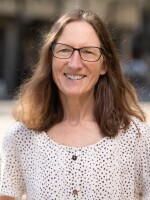In Eugene, eight selected startup companies began a journey toward potential long-term success this week. Thanks to a new public and private collaboration, they'll use the next 12 weeks to create a plan and then implement it.
The Regional Accelerator and Innovation Network, or RAIN, was funded by the State of Oregon to cultivate jobs and economic strength. It's a partnership between the state, universities and communities. Over the next three months, the fledgling companies in Eugene will be intensively coached in how to grow a business. The start-ups were chosen because they have the potential to expand and to benefit from the program.
Nathan Gustafson runs Manage My Co-op with his wife. He's developed software to help cooperatives for food and other products handle their group buying. He hopes RAIN will help them answer some questions:
Gustafson: "How do we need to structure the business? How do we need to plan growth? How should we look at our employee structure over the next three months, six months, a year? And then we can take it from there."
Zander Eckblad is a co-founder of Black Lodge Design Lab. His company uses nano-cellulose to create building materials:
Eckblad: "So the idea is down, the prototypes are down. And now it's a matter of getting it to scale and getting it out. That's kind of what we're working on here. We're pretty excited about where it can go, and we're just trying to get some help to get it out there."
Black Lodge's objectives fit the Eugene area nicely. The company wants to use closed paper mills to grind waste plant matter to create their materials. Eckblad would love to see local production and manufacturing begin within a year.
Keeping new companies in the area is one of RAIN's goals. Joe Maruschak is Director of the Eugene Accelerator. He says the community needs to learn to welcome startups and invest in them financially and personally. He thinks local support has been missing before now.
Maruschak: "If we're thinking that one of these companies might be the next Nike, for instance. If we can get them at the waffle iron in the garage stage, when they're just the two guys, if we can get them at that stage and start thinking of their growth here, and working with them they'll stay. And that's the change in attitude that we have to do."
Maruschak would like to see a 200- or 300-person company come out of the program within a couple of years. RAIN will have two cohorts of companies each year with the hopes of adding many local jobs.




